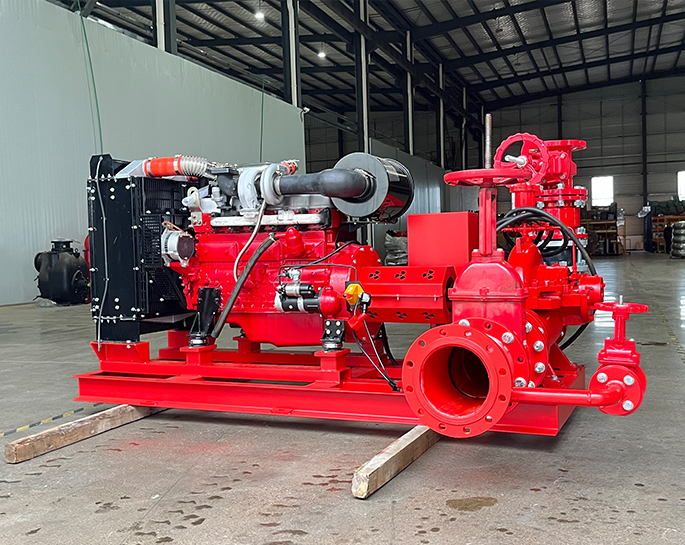What role do maintenance and testing play in ensuring the reliability of fire pump systems?
Apr 16, 2024
Share:
Maintenance and testing are critical aspects of ensuring the reliability of fire pump systems. Here's how they contribute:
1. **Preventive Maintenance**: Regular maintenance helps identify and address potential issues before they become major problems. This includes tasks such as inspecting, cleaning, lubricating, and replacing worn parts. By keeping the system in good condition, the likelihood of failure during an emergency is reduced.
2. **Performance Testing**: Regular testing ensures that the fire pump system operates as intended and meets the required performance standards. This can involve conducting flow tests, pressure tests, and other functional checks to verify that the system can deliver the necessary water flow and pressure to extinguish a fire effectively.
3. **Compliance**: Fire pump systems are subject to various regulations and standards, such as those set by the National Fire Protection Association (NFPA). Regular maintenance and testing help ensure compliance with these standards, which is essential for ensuring the safety of occupants and protecting property.
4. **Reliability Assurance**: By maintaining and testing fire pump systems regularly, building owners and managers can have confidence that the system will function reliably in the event of a fire. This helps minimize the risk of property damage, injuries, and loss of life.
5. **Early Detection of Problems**: Through routine maintenance and testing, any potential issues or weaknesses in the system can be identified early and addressed promptly. This proactive approach helps prevent unexpected failures and ensures that the fire pump system remains operational when needed most.
Overall, maintenance and testing are essential components of a comprehensive fire protection strategy, helping to ensure the reliability and effectiveness of fire pump systems in protecting life and property.

1. **Preventive Maintenance**: Regular maintenance helps identify and address potential issues before they become major problems. This includes tasks such as inspecting, cleaning, lubricating, and replacing worn parts. By keeping the system in good condition, the likelihood of failure during an emergency is reduced.
2. **Performance Testing**: Regular testing ensures that the fire pump system operates as intended and meets the required performance standards. This can involve conducting flow tests, pressure tests, and other functional checks to verify that the system can deliver the necessary water flow and pressure to extinguish a fire effectively.
3. **Compliance**: Fire pump systems are subject to various regulations and standards, such as those set by the National Fire Protection Association (NFPA). Regular maintenance and testing help ensure compliance with these standards, which is essential for ensuring the safety of occupants and protecting property.
4. **Reliability Assurance**: By maintaining and testing fire pump systems regularly, building owners and managers can have confidence that the system will function reliably in the event of a fire. This helps minimize the risk of property damage, injuries, and loss of life.
5. **Early Detection of Problems**: Through routine maintenance and testing, any potential issues or weaknesses in the system can be identified early and addressed promptly. This proactive approach helps prevent unexpected failures and ensures that the fire pump system remains operational when needed most.
Overall, maintenance and testing are essential components of a comprehensive fire protection strategy, helping to ensure the reliability and effectiveness of fire pump systems in protecting life and property.


.png)
.png)

.png)


